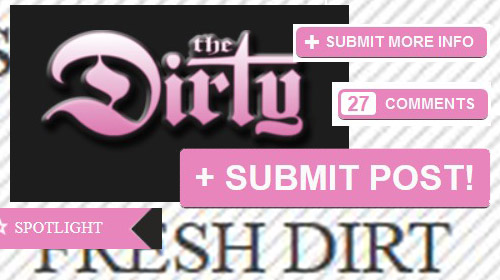
(Updated below)
WeŌĆÖve written before about Section 230 of the Communications Decency Act of 1996 ŌĆö a federal law that protects the robust diversity of free speech weŌĆÖve come to know and love (and hate) on the Internet. Last night, the │į╣Žų▒▓ź and the had a chance to put our money where our mouth is. We filed a friend of the court brief on behalf of the user-generated gossip website (warning: not just a clever name) and its publisher Nik Richie, who were recently ŌĆö and wrongly ŌĆö held legally responsible for someone elseŌĆÖs internet trolling. Our brief, filed alongside a - of dedicated to free speech, argues that the decision could be a disastrous precedent for Internet speech.
Section 230, which immunizes websites from legal liability for the comments of their users, defines Internet culture as we know it. You know how you could, if you were so inclined, go on Yelp and trash a business? Section 230 ensures that if you lie, and the company sues you for defamation, ▓Ō┤Ū│▄ŌĆÖr▒ on the hook for lying, not Yelp. Similarly, if you use Facebook to harass someone ŌĆö donŌĆÖt do that, by the way ŌĆö Facebook doesnŌĆÖt become the defendant; you do.
When Congress enacted Section 230, it wisely recognized that holding every website legally responsible for user-generated content would cripple the rapidly developing online world. Section 230 liberates websites from the chilling effect caused by the fear of being sued every time an Internet user exercises bad judgment.
The vast majority of courts have honored Section 230ŌĆÖs robust immunity. But a court recently bucked this principled tradition when faced with the salacious set of facts in this case.
TheDirty.com is probably best known for its role in the latest Anthony Weiner scandal. In 2009, the site posted an anonymously submitted story stating that Sarah Jones, a high school teacher and Cincinnati Bengals cheerleader, slept with the entire Bengals team. A second post alleged Jones had sex with her husband in her classroom and had STDs. TheDirty.comŌĆÖs publisher, Nik Richie, then added his own fateful commentary at the bottom of this post: ŌĆ£Why are all high school teachers freaks in the sack? ŌĆō nik.ŌĆØ
Jones then filed a lawsuit against Richie and the site, claiming the two posts alleging she had STDs were defamatory. To be clear, the posts accusing Jones of having STDs and sleeping with the team were absolutely defamatory. But Jones didnŌĆÖt sue the person who wrote the posts. She sued TheDirty.com and Richie for hosting them.
The defendants claimed that Section 230 provided immunity because those posts were authored by a third party, but the judge (incorrectly) disagreed. He held, basically, that Richie was asking for it, due to the name of the site, RichieŌĆÖs general ŌĆ£encouragementŌĆØ of gossip, and his ŌĆ£adoptionŌĆØ of the anonymous defamation by wondering aloud why teachers are freaky. (ItŌĆÖs important to note that asking why all teachers are freaky is absolutely not itself defamatory, and no one in this case claimed otherwise.) The judge then instructed the jury that Richie was on the hook for the anonymous posterŌĆÖs defamation of Jones; the jury awarded her $338,000 in damages. (Interestingly, this took two jury trials ŌĆö the first jury couldnŌĆÖt reach a after hearing about JonesŌĆÖ intervening felony conviction for having sex with one of her students.)
The judge was flat wrong on the law. But this decision is even worse public policy. ThatŌĆÖs because the essence of the trial courtŌĆÖs judgment was that by seeking critical, disparaging speech (gossip), Richie and TheDirty.com were actively seeking unlawful speech (defamation), and didnŌĆÖt deserve immunity. But dirt simply doesnŌĆÖt equal defamation. And equating the two would be disastrous for other sites that offer a wide array of extremely valuable speech.
For example, consumer watchdog sites encourage users to submit reports of corporate malfeasance ŌĆö speech that is inherently critical, disparaging, even damaging for the companies complained about. But is clearly a great public service, not a hub for criminal activity. Similarly, environmental activists at sites like invite users to submit horror stories about fracking in their communities; the asks users to report bed bug infestations.
These sites, just like TheDirty.com, solicit and collect (truthful) negative commentary that could absolutely ruin a business or individualŌĆÖs reputation. They rely on user-generated content to populate their sites, and sometimes react to it as though itŌĆÖs true. Their users, like anyone else on the net, and like the anonymous troll on TheDirty.com, might lie. And Section 230 places the consequences for those lies squarely on the shoulders of the liar ŌĆö not the website that hosted the speech just because it waded into critical waters.
But the Jones decision threatens to turn every trollŌĆÖs comments into a lawsuit that a website will have to defend.
ItŌĆÖs important this decision is overturned, not only for these defendants, but for every website offering platforms for user speech, especially critical speech. This decision risks eroding the certainty websites currently enjoy that they wonŌĆÖt spend every day litigating over their comment section. We proudly join the chorus of voices asking the appeals court to overturn it.
Update (June 16, 2014):
This decision was overturned; blog post here.

